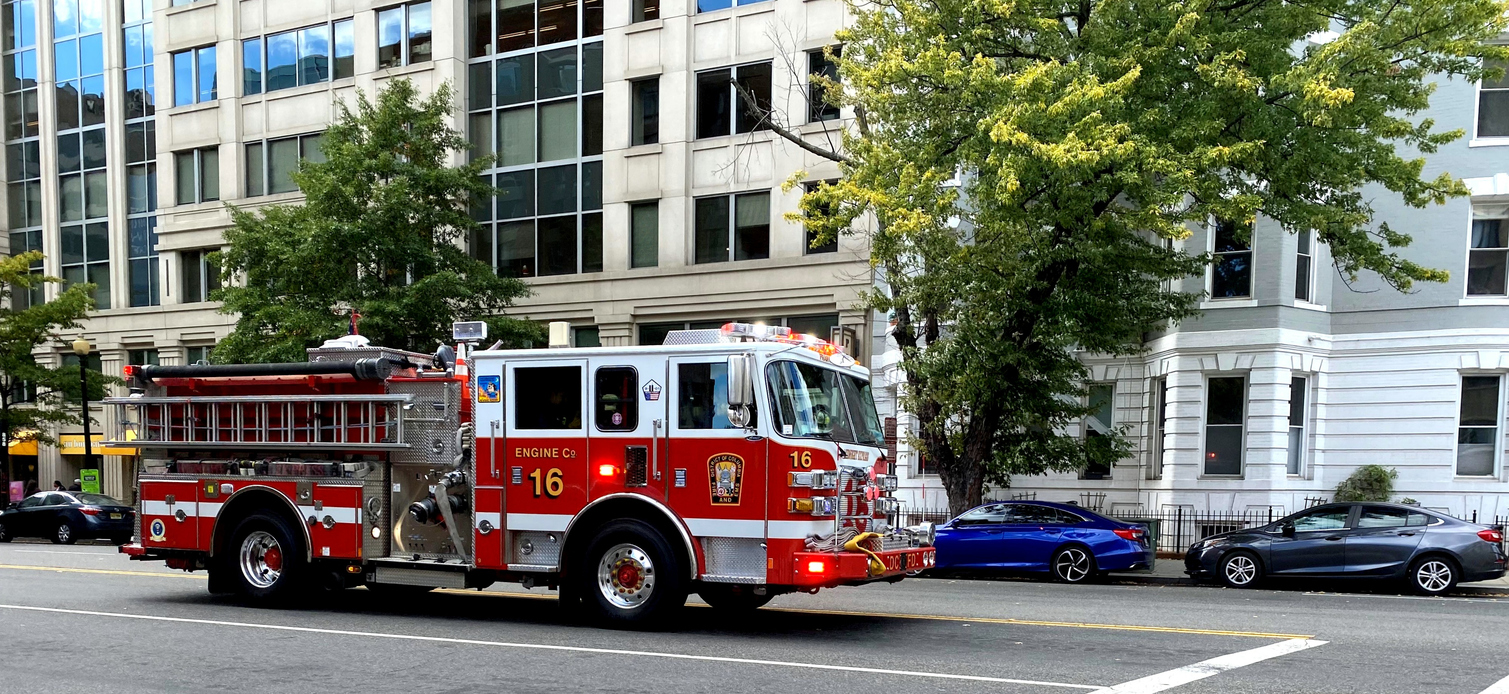
Summer is one of the busiest seasons for fire departments. With wildfires on the rise, heavier road congestion, and more emergency calls, there’s a significant uptick in fire vehicle activity. Consequently, the risk of collisions increases sharply during this time, not just because of the heat and long hours but also the sheer mileage. For insurance agents working with fire departments, summer presents the ideal time to review and reinforce critical coverage, like commercial auto for fire departments. Verifying that comprehensive firefighter auto insurance is in place can make all the difference when the unexpected strikes.
Why Summer Driving Poses Elevated Risk for Fire Departments
Between May and August, Americans log more miles on the road than at any other time of year — and with those miles come more collisions and injuries. In fact, over 19,000 fire department vehicles were involved in accidents while responding to or returning from calls in 2023, resulting in 1,450 injuries, according to the NFPA.
Several summer-specific hazards may contribute to these risks:
- Overheated engines and worn-out tires due to high temperatures
- Heavier road traffic from tourists and summer events
- Driver fatigue after long shifts in hot weather
- Increased pedestrians and cyclists sharing the road
Therefore, proactive planning and strong insurance coverage must be a priority for departments and the agents who serve them.
How Firefighter Auto Insurance Addresses Summer Collision Risks
A solid firefighter auto insurance policy is a vital safeguard against liability, injury, and financial loss. Provident FirePlus offers commercial auto policies for fire departments covering departmental and member vehicles used on duty.
Coverage includes:
- Bodily injury and property damage liability
- Medical payments and personal injury protection
- Uninsured and underinsured motorist coverage
- Physical damage to member autos
- Fellow member/employee liability
- Garagekeepers, commandeered auto, and hired/non-owned auto liability
In real-world summer situations — from rear-end collisions in tourist-packed towns to equipment loss in a high-speed response — this kind of robust coverage keeps departments moving forward, not mired in claims.
The Role of Maintenance in Collision Prevention and Claims Support
Insurance and maintenance go hand in hand, especially in the summer. Routine service checks help prevent breakdowns that can lead to collisions or complicate insurance claims. Departments should focus on the following during seasonal fleet prep:
- Inspecting brake systems, engines, and electrical components
- Replacing worn tires and checking battery performance
- Topping off fluids like coolant, oil, and hydraulic fluid
In addition, complete and accurate maintenance logs help streamline claims if a collision occurs. Deferred maintenance isn’t just an operational issue — it’s a liability risk that could undermine even the best firefighter auto insurance policy.
What Insurance Agents Can Do To Support Their Clients
Helping your firefighter clients reduce summer collision risks starts with strong coverage, but it doesn’t end there. Agents can play a proactive role in risk management, claims preparation, and seasonal readiness.
Review Policy Limits and Deductibles
Ensure your clients’ commercial auto for fire departments coverage reflects current vehicle usage, fleet value, and operating environments. Reassess deductibles based on recent claims history or added risks during high-response months.
Confirm Driver Rosters, Mutual Aid Responsibilities, and Vehicle Schedules
Accurate vehicle schedules and listed drivers help prevent coverage disputes and delays during claims. Be sure policies account for shared service areas and jurisdictional mutual aid agreements that may affect liability.
Encourage Departments to Schedule Seasonal Mechanical Inspections
Spring and summer bring more calls — and more wear on emergency vehicles. Routine inspections can catch brake, tire, or fluid issues before they become major problems or lead to insurance complications.
Recommend Driver Safety Refreshers Focused on Summer Risks
Fire apparatus operators face heightened road hazards in the summer, from increased traffic to sun glare and heat stress. Annual or seasonal safety training can reduce incident rates and improve claims outcomes.
Provide Checklists for Claims Reporting and Documentation Best Practices
Complete and timely reporting is critical in the event of an accident. Offering simple checklists or templates ensures departments know what to document, helping streamline claims for clients and carriers.
Summer Is No Time for Gaps in Coverage
Fire departments face heightened risk every summer when they hit the road. Operational readiness and strong insurance coverage go hand in hand when protecting first responders, their vehicles, and the communities they serve.
Commercial auto for fire departments and firefighter auto insurance should never be afterthoughts. Instead, they’re crucial components of a proactive risk management strategy.
Ready to help your clients stay safe and secure this summer? Contact Provident FirePlus to explore comprehensive coverage options tailored to the needs of fire and emergency service organizations.
About Provident FirePlus
Founded in 1902, Provident FirePlus has a long history of creating custom insurance benefits for fire departments and emergency service organizations. Our Commercial General Liability insurance provides both core protection and specialized coverage extensions to help departments face today’s risks. Give us a call at (412) 963-1200 to speak with one of our representatives, or get in touch with us to learn more.

